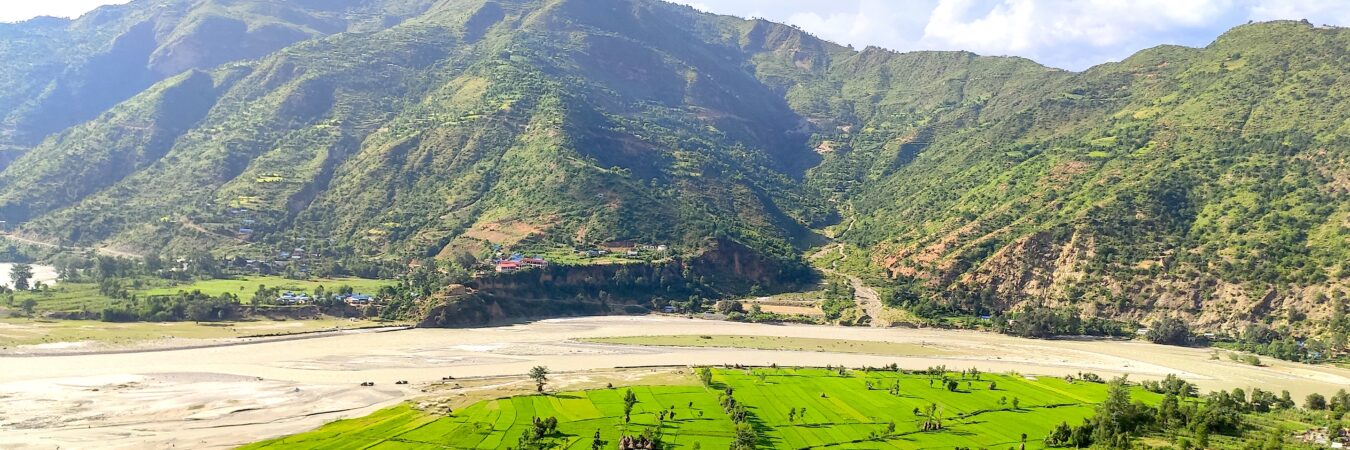
News
World Bank selects ANSAB as the regional intermediary for the FCPF capacity-building programs in Asia and the Pacific
ANSAB has been selected as the regional intermediary organization by the World Bank for the FCPF (Forest Carbon Partnership Facility) capacity building programs for the fiscal year 2014-15 in Asia and the Pacific region. FCPF mentioned the criteria for the organizations with a high level of regional credibility;…
REDD+ pilot project in Nepal provides seed grants to communities for their role in conservation and sustainable management of forests
At a ceremony organized at the Asia Network for Sustainable Agriculture and Bioresources (ANSAB) – Kathmandu, representatives from three watersheds in Dolakha, Gorkha, and Chitwan districts received REDD+ seed grants of US$ 95,000 for the third year as carbon payments for their contributions to conservation and sustainable management…
Community-based REDD+ pilot program in Nepal: Incentive for climate change mitigation and forest conservation measures
Understanding how new concepts such as Payment for Ecosystem Services (PES), Reducing Emissions from Deforestation and Forest Degradation (REDD), REDD+, and the evolving global carbon markets can be incorporated into conservation and poverty alleviation strategies have been ANSAB’s recent major goals. ANSAB has, in partnership with the International…
Event: 36th sharing meeting of NNN
Asia Network for Sustainable Agriculture and Bioresources (ANSAB) organized the 36th sharing meeting of Nepal NTFP Network (NNN) on March 15, 2014 with the following agendas: Major agenda • Presentation and discussion on Prioritizing NTFP enterprises & support options that deliver integrated, intensified and climate smart land use…
Event: Third International Forest Connect Workshop
ANSAB in partnership with the International Institute of Environment and Development (IIED) and the Food and Agriculture Organizations of the United Nations (FAO) organized the third Forest Connect International Workshop from February 12-15, 2013 in Kathmandu Nepal. A total of 30 individuals and institutions from 19 countries participated…
Organic agriculture: A promising sector for income generation in Nepal
The farm production system in Nepal is highly integrated and interlinked, and is characterized by subsistence farming. The majority of the farming communities have extremely small landholdings of less than 0.5 ha. Farming in Nepal has always been based on production techniques that are healthy and promote healthy…
Bio-briquette value chain: ANSAB’s initiation to develop fair bio-briquette value chain in Nepal
Bio-Briquettes are a promising source of alternative energy with a proven record of their effectiveness to increase earnings for the poor, reduce health risks for women and children, maintain carbon pool in forests, and reduce the propagation of invasive alien species. In Nepal, briquettes are produced at smallholder…
Growing energy crisis and biomass energy
An interaction program on “Growing Energy Crisis and Biomass Energy” was organised by ANSAB in collaboration with Hipat, an agriculture monthly magazine, on November 12, 2012 at Kathmandu involving the Secretary of Ministry of Environment, Science and Technology; Joint Secretary of National Planning Commission; Deputy Director of Alternative…
Briquette industry making village women self-reliant
The Himalayan Times on November 12, 2012 writes on the case of the ANSAB supported briquette industries in Sindhupalchowk and Dolakha districts, in making the village women self-reliant. The news reads as follows: HIMALAYAN NEWS SERVICE KATHMANDU: People willing to learn lessons on entrepreneurship can learn a lot…
ANSAB partners with Yale to organize Yale Himalaya Initiative consultation workshop
ANSAB worked with the Yale University as a local partner to organize Yale Himalaya Initiative (YHI) consultation workshop in Kathmandu, Nepal, on August 12, 2012. The daylong event brought Yale faculty together with scholars and professionals from across the Himalaya region to share ideas and develop directions for…
REDD+ pilot project makes the second forest-carbon payment
On July 18, 2012, three watersheds under the REDD+ pilot project in Nepal received a seed grant of US $95,000 as carbon payments for their contributions to sustainable conservation and management of forests. Joint Secretary of the Ministry of Forests and Soil Conservation, Mr. Resham Bahadur Dangi handed…
ANSAB presents in High Value Agriculture Project (HVAP)’s regional value chain workshop
Value Chain Experts from ANSAB presented on the preliminary findings of the value chain and baseline studies of the select four products – Turmeric, Off-season Vegetables, Goat and Timur in a regional value chain consultation and intervention strategy development workshop conducted by the High Value Agriculture Project in…
